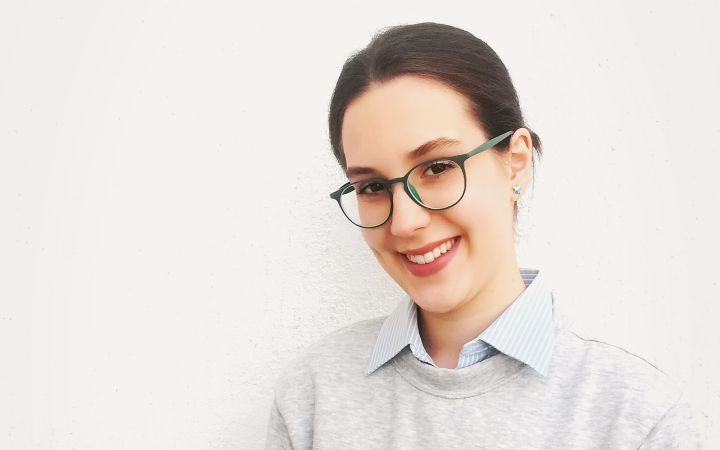- Olga Devic is a translator that joined a team of young women to translate a course on AI and human rights into Serbian.
- The course is “Defending Human Rights in the Age of Artificial Intelligence“ and was created by UNITAR and UNESCO in English with original translations in French, Spanish, Russian, and Chinese.
- Recently, with the support of the SALTO Participation & Information Resource Centre (SALTO PI), youth translators have volunteered on bringing the course into 20 additional languages.
- Working on an all-female team of translators, Olga was inspired and motivated, especially given the lack of gender representation in spaces engaging with AI.
- Olga's efforts remind us that we all have a role to play in shaping the future of AI and that by working together and sharing knowledge, we can create a world where technology serves humanity.
25 April 2023, Hiroshima, Japan - Olga Devic is a translator who is passionate about the intersection of artificial intelligence (AI) and human rights. She joined a team of young women to translate a course on AI and human rights into Serbian. The course “Defending Human Rights in the Age of Artificial Intelligence“ was created by UNITAR and UNESCO in English with original translations in French, Spanish, Russian, and Chinese. Recently, with the support of the SALTO Participation & Information Resource Centre (SALTO PI), youth translators have volunteered to bring the course into 20 additional languages.
Olga’s interest in AI and human rights began during her studies when she explored the two topics in her thesis. She was drawn to the ability to take control over her rights in the digital space and the impact of data usage on those rights. She believes that AI can be used to define and protect our rights.
When she heard through a friend who was a developer of the course about the opportunity to translate it into Serbian, she was immediately interested. She found the topics interesting to learn and talk about. “When I was translating, I was also learning”, Olga said.
Working on an all-female team of translators, she was inspired and motivated, especially given the lack of gender representation in spaces engaging with AI.
When it comes to AI and IT in general, we’re lacking girls’ and female perspectives.
Olga also noted that the course helped her to become more aware of AI applications and their impact on her everyday life. For example, she had not previously paid attention to the use of cookies and how they affect privacy.
The team found it challenging to translate technical words that did not have direct Serbian translations. Whenever possible, they tried to find Serbian alternatives instead of using English, relying on each other to propose new words.
I tried to think a lot about how to make it sound good, to have a sense, to have meaning. Overall, it was an amazing experience. I was learning through that process.
Olga’s work on translating the AI and human rights course into Serbian is just one example of her dedication to educating others and empowering girls and women in AI. Her efforts remind us that we all have a role to play in shaping the future of AI and that by working together and sharing knowledge, we can create a world where technology serves humanity.
Interview conducted by UNESCO
Article written by UNITAR
About UNITAR
The United Nations Institute for Training and Research (UNITAR) is a dedicated training arm of the United Nations. In 2021, UNITAR trained 370,139 learners around the world to support their actions for a better future. In addition to our headquarters in Geneva, we have offices in Hiroshima, New York, Bonn and various networks around the world.
One of the eight divisions of UNITAR, the Division for Prosperity, based in the Hiroshima Office and Geneva Headquarters, seeks to shape an inclusive, sustainable and prosperous world. World-class learning and knowledge-sharing services on entrepreneurship, leadership, finance and trade, digital technologies, and nuclear disarmament and non-proliferation are offered. We empower individuals from developing countries – especially women and young people – to address inequalities. Our alumni are making a difference in least-developed countries, countries emerging from conflict, and small-island developing states.


